
Key Words: China-Japan; Diaoyu Islands
Related Reading:
>> Fine and fresh, Shanghai takes a bite of Diaoyu Islands
>> Senior officials urge calm over islands dispute
>> Taiwanese, Japanese ships confront near Diaoyu Islands
Japanese Prime Minister Shinzo Abe spoke highly of a recent visit to China by the leader of his party's coalition partner New Komeito.
In response to the call of China's top political leader Xi Jinping to improve ties, the Japanese prime minister said the door to dialogue is still open.
Observers said the two sides have demonstrated restraint and suggest dialogue be enhanced to mend ties damaged by the island disputes.
Japanese media reported that Abe was encouraged by Natsuo Yamaguchi's four-day visit to China. Yamaguchi, party leader of Japan's pacifist New Komeito, went to Beijing on Tuesday and handed Xi a letter from Abe.
According to Japanese newspaper Asahi Shimbun, Abe said Yamaguchi's visit was "very good", and "it was encouraging that a consensus was reached on the need to promote a mutually beneficial relationship while considering the bigger picture".
Abe said he is prepared to keep the door open for dialogue, Yamaguchi said.
Abe told Japanese newspaper Mainichi Shimbun on Sunday that exploring ways to have a leaders' meeting is "on his mind". The comments were in response to Xi's emphasis on high-level dialogue. He said maintaining the status of dialogue "serves the national interests of both countries".
During Yamaguchi's meeting with Xi on Friday, Xi said Beijing's emphasis on developing China-Japan ties "has not changed".
Before his trip, there was widespread speculation on whether Yamaguchi would meet with Xi, and the fact the meeting did occur demonstrates the importance Beijing attached to Yamaguchi's visit and willingness to improve ties, said Zhang Tuosheng, a researcher at the China Foundation for International and Strategic Studies.
During the meeting, Xi called on both sides to show "national responsibility, political wisdom and historical duty", similar to what the former leaders of the two countries had done.
The three key phrases of Xi's advice can be seen as the key to decode the current diplomatic dilemma, said Feng Wei, an expert on Japanese studies at Fudan University in Shanghai.
"A lack of historical duty is behind the rampant nationalism within Japan, and dispelling the nationalistic sentiment is a key to solving the islands tension and improving bilateral ties," Feng said.
Abe's handwritten letter is indicative of his wish for improving ties.
"The key to thaw ties depends on what Tokyo will do next," Zhang Tuosheng added.





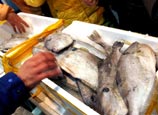
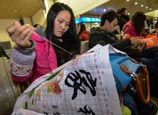

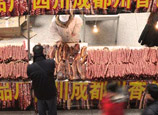
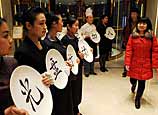
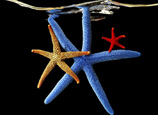






 China's weekly story (2013.01.21-01.27)
China's weekly story (2013.01.21-01.27)


![]()
